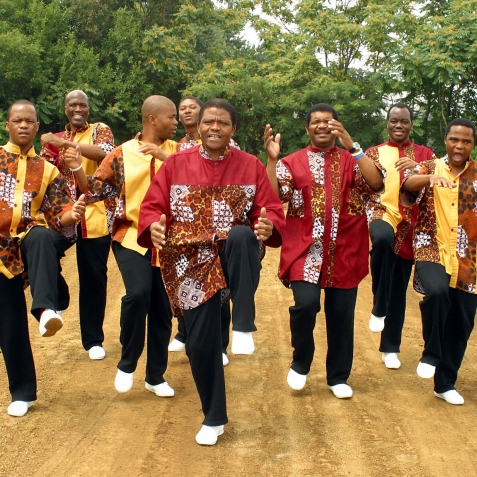Shosholoza. Moving Fast, Moving Strong
 As a new volunteer at Firelight, I thought about what inspired me most about my travels and personal experiences in Africa and what I wanted to share about them. Having studied music in South Africa in 2008, I fell in love with Africa, and through that, was led to Firelight. When I thought about Firelight’s goals to support communities to help children, Shosholoza immediately rang through my mind.
As a new volunteer at Firelight, I thought about what inspired me most about my travels and personal experiences in Africa and what I wanted to share about them. Having studied music in South Africa in 2008, I fell in love with Africa, and through that, was led to Firelight. When I thought about Firelight’s goals to support communities to help children, Shosholoza immediately rang through my mind.
Shosholoza is a South African traditional song. Its significance has changed over time, but the meaning has stayed the same. This song has inspired several communities to unify under very different circumstances. It has helped people through many times of struggle, and is now sung in celebration of South Africa’s national unity.
Shosholoza began as a folk song for the gold and diamond miners traveling back and forth between Zimbabwe and South Africa. The word Shosholoza is a combination of both Ndebele (of Zimbabwe) and Zulu (of South Africa) words meaning “to push forward, endeavor, or strive.” The sound of the word itself is symbolic of the steam engine trains that carried miners through the mountains. It is said that the song helped to lessen the workload and to help create a rhythm to work to through the long and hard days.
The song later evolved into a symbol of political status and struggle of the black community during the Apartheid era. The same lyrics, roughly translated as; “Moving fast, Moving strong, through those mountains…” had transformed into a symbolic phrase, encouraging a revolution. The powerful and inspirational lyrics played a part to help unify and galvanize those struggling for democracy. In Nelson Mandela’s autobiography, Long Walk to Freedom, he described Shosholoza as “a song that compares the Apartheid struggle to the motion of an oncoming train.”
Today, the song is still used and even considered by some to be South Africa’s “second” national anthem. It has been the National sporting anthem of South Africa since Nelson Mandela’s Presidency. It continues to be recorded again and again by famous artists like Ladysmith Black Mambazo. It was even specially recorded by the South African group, Overtone, for Clint Eastwood’s 2009 movie, Invictus- for which it gained a tremendous amount of attention on a global scale.
Shosholoza is now a traditional staple in South Africa, and is celebrated by many cultures within the Rainbow Nation. When writing to a close friend in Cape Town about his thoughts on Shosholoza, and the significance of it to him as a young adult, he said, “It fills me with a lot of pride in South Africa and in my lifetime has helped me to connect with my own sense of what it is to be from here. I remember my first experiences of it being during the 1995 world cup and that it was something black and white people sang together. Unity.”-Edward O’Reilly, age 24.
I use Shosholoza here at Firelight to illustrate how music is used as a tool to help relay such histories, and to honor community struggle and triumphs. Music in any sense is particularly inspiring to me in that it has the great power to stir a mood, paint a picture in our minds, and connect our hearts to a new meaning that we otherwise might not have felt. It is my goal here at Firelight to continue to learn and show how the African music arts encourage love and community building both within our grantee programs as well as in our own work.
Here are some cool examples of Shosholoza that I hope you’ll enjoy:
Shosholoza as it was used in Invictus
Shosholoza being sung by soccer fans at game in Bloemfontein
Shosholoza being sung by Roodewal Primary School in Worcester
 Emiley Stake, age 23, is one of Firelight’s Globally Engaged Youth Volunteers. She is a recent graduate from UC Santa Cruz and also studied ethnomusicology at the University of Cape Town, South Africa, and cultural studies in Rome, Italy. While in Cape Town, Emiley volunteered as a music teacher in the Manenburg area at a school attended by youth with limited resources. She would some day like to move back to South Africa.
Emiley Stake, age 23, is one of Firelight’s Globally Engaged Youth Volunteers. She is a recent graduate from UC Santa Cruz and also studied ethnomusicology at the University of Cape Town, South Africa, and cultural studies in Rome, Italy. While in Cape Town, Emiley volunteered as a music teacher in the Manenburg area at a school attended by youth with limited resources. She would some day like to move back to South Africa.
